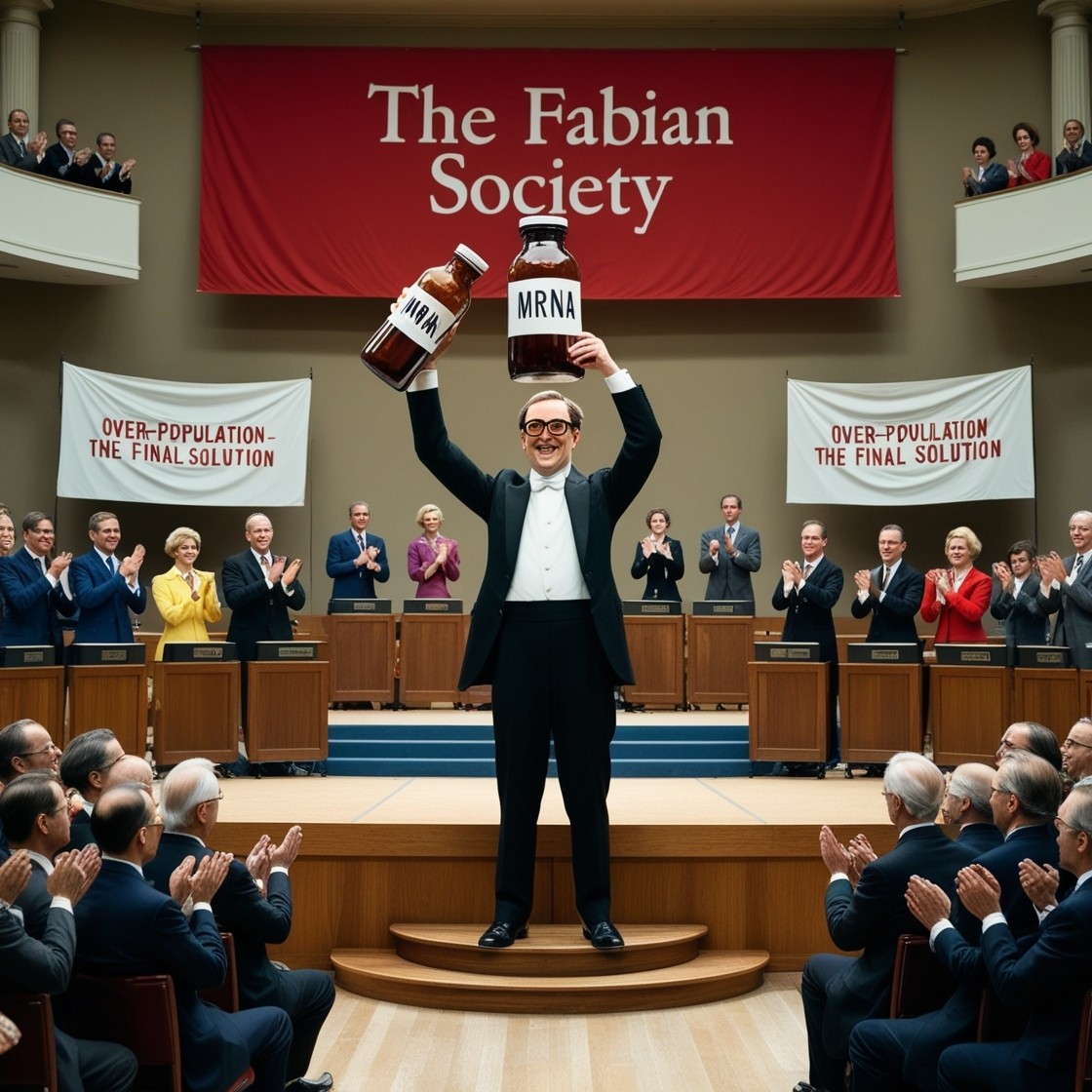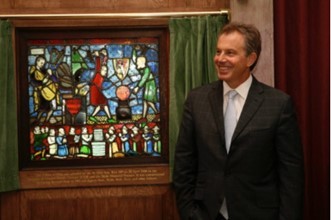
Just in case one might think H G Wells was an outlier among members of the Fabian Society, the ideas of founder member George Bernard Shaw ought to relieve us of that notion. Shaw, playwright of Arms and The Man, Mrs Warren’s Profession, Pygmalion and many others, critic, activist and polemicist, had some pretty rum views of his own.
He began attending meetings of the Social Democratic Federation (SDF), where he discovered the writings of Karl Marx, and thereafter spent much of 1883 reading Das Kapital. He doubted the ability of the SDF to harness the working classes into an effective radical movement and did not join it—he preferred, he said, to work with his intellectual equals.
From 1885 to 1889 Shaw attended the fortnightly meetings of the British Economic Association; which was, an observer noted, "the closest Shaw had ever come to university education". This experience changed his political ideas; he moved away from Marxism and became an apostle of gradualism. When in 1886–87 the Fabians debated whether to embrace anarchism, as advocated by Charlotte Wilson, Besant and others, Shaw joined the majority in rejecting this approach. After a rally in Trafalgar Square addressed by Besant was violently broken up by the authorities on 13 November 1887 (the first “Bloody Sunday”), Shaw became convinced of the folly of attempting to challenge police power. Thereafter he largely accepted the principle of "permeation" as advocated by Webb: the notion whereby socialism could best be achieved by infiltration of people and ideas into existing political parties. 
As the new century began, Shaw became increasingly disillusioned by the limited impact of the Fabians on national politics. Although he was a nominated Fabian delegate, he did not attend the London conference at the Memorial Hall, Farringdon Street in February 1900, that created the Labour Representation Committee—precursor of the modern Labour Party.
The 1906 General Election produced a huge liberal majority and 29 Labour MPs, but Shaw felt they would have no influence. At this time, he believed that the Fabians needed fresh leadership and saw H. G. Wells, as the ideal man. However, Wells’ ideas for reform—particularly his proposals for closer cooperation with the Independent Labour Party—placed him at odds with the society's "Old Gang", led by Shaw. Unfortunately for him, Wells had minimal capacity for putting his ideas across in public meetings against Shaw's rhetorical skills. In Shaw's view, "the Old Gang did not extinguish Mr Wells, he annihilated himself". Wells resigned from the society in September 1908 while Shaw remained but left the executive in April 1911. Although he became less active, he remained a member.
The next notable thing about Shaw is his enthusiasm for the Soviet Union which dated to the early 1920s when he had hailed Lenin as "the one really interesting statesman in Europe". Having turned down several chances to visit, in 1931 he joined a party led by Nancy Astor. The carefully managed trip culminated in a lengthy meeting with Stalin, whom Shaw later described as "a Georgian gentleman" with no malice in him. At a dinner given in his honour, Shaw told the gathering: "I have seen all the 'terrors' and I was terribly pleased by them". In March 1933, he was a co-signatory to a letter in The Manchester Guardian protesting at the continuing misrepresentation of Soviet achievements:
"We the undersigned are recent visitors to the USSR ... We desire to record that we saw nowhere evidence of economic slavery, privation, unemployment and cynical despair of betterment. ... Everywhere we saw [a] hopeful and enthusiastic working-class ... setting an example of industry and conduct which would greatly enrich us if our systems supplied our workers with any incentive to follow it."
Shaw had a declared admiration for Mussolini and Stalin which demonstrated his growing belief that dictatorship was the only viable political arrangement. When the Nazi Party came to power in Germany in January 1933, He described Hitler as "a very remarkable man, a very able man", and professed himself proud to be the only writer in England who was "scrupulously polite and just to Hitler" although his principal admiration continued to be for Stalin, whose regime he championed uncritically.
He may have fallen out with H G Wells about the strategy of the Fabian Society but in one other aspect of left-wing philosophy he was completely at one with him as this video attests.
Think of that the next time you’re tempted to buy tickets for a production of one of Shaw’s plays or read one of Wells’ novels. So much for the thoughts of prominent early members of the Fabian Society. Were they the only ones who thought like this?
It’s been difficult to find much about the beliefs of other early members, probably because they were not the public figures that Wells and Shaw were. But there is one of interest even though he was a member for a relatively short period despite standing twice for election as a member of the Labour Party - Bertrand Russell. He left ostensibly because he thought the Fabians support for entente between the wars would actually lead to war, but it could have been because Fabian gradualism was, for him, just too slow. Let’s take a look at some of the things he had to say in the Conclusion to his The Impact of Science on Society written in 1953.
“First, as regards physical conditions. Soil and raw materials must not be used up so fast that scientific progress cannot continually make good the loss by means of new inventions and discoveries.
“If raw materials are not to be used up too fast, there must not be free competition for their acquisition and use but an international authority to ration them in such quantities as may from time to time seem compatible with continued industrial prosperity. And similar considerations apply to soil conservation.
“Second, as regards population. If there is not to be a permanent and increasing shortage of food, agriculture must be conducted by methods which are not wasteful of soil and increase of population must not outrun the increase in food production rendered possible by technical improvements. At present neither condition is fulfilled. The population of the world is increasing, and its capacity for food production is diminishing. Such a state of affairs obviously cannot continue very long without producing a cataclysm.
“To deal with this problem it will be necessary to find ways of preventing an increase in world population. If this is to be done otherwise than by wars, pestilences, and famines, it will demand a powerful international authority. This authority should deal out the world's food to the various nations in proportion to their population at the time of the establishment of the authority. If any nation subsequently increased its population, it should not on that account receive any more food. The motive for not increasing population would therefore be very compelling. What method of preventing an increase might be preferred should be left to each State to decide.
“In general terms, we may say that so far as the population problem is concerned a scientific society could be stable if all the world were as prosperous as America is now. The difficulty, however, is to reach this economic paradise without a previous success in limiting population. It cannot be done as things are now without an appalling upheaval. Only government propaganda on a large scale could quickly change the biological habits of Asia. But most Eastern governments would never consent to this except after defeat in war. And without such a change of biological habits Asia cannot become prosperous except by defeating the Western nations, exterminating a large part of their population, and opening the territories now occupied by them to Asiatic immigration. For the Western nations this is not an attractive prospect, but it is not impossible that it may happen.
“Irrational passions and convictions are so deeply involved in the problem that only an infinitesimal minority, even among highly educated people, are willing even to attempt to consider it rationally. That is the main reason for a gloomy prognosis.
“Coming, finally, to the psychological conditions of stability, we find again that a high level of economic prosperity is essential. This would make it possible to give long holidays with full pay. In the days before currency restrictions dons and public schoolmasters used to make their lives endurable by risking death in the Alps. Given secure peace, a not excessive population, and a scientific technique of production, there is no reason why such pleasures should not be open to everybody.
“There will be need also of devolution, of a great extension of federal forms of government, and of keeping alive the kind of semi-independence that now exists in English universities.
“My conclusion is that a scientific society can be stable given certain conditions. The first of these is a single government of the whole world, possessing a monopoly of armed force and therefore able to enforce peace. The second condition is a general diffusion of prosperity, so that there is no occasion for envy of one part of the world by another. The third condition (which supposes the second fulfilled) is a low birth rate everywhere, so that the population of the world becomes stationary, or nearly so. The fourth condition is the provision for individual initiative both in work and in play, and the greatest diffusion of power compatible with maintaining the necessary political and economic framework.”
Don’t you just love the “dons and public schoolmasters used to make their lives endurable by risking death in the Alps”? The poor dears.
For Scientific Society read Technocracy. Russell, then, was very much a proponent of authoritarian One World Government and population control. I think we can rest assured that the thoughts and writings of such a ‘celebrated’ British philosopher will have been lapped up in the Rockefeller tax-exempt foundations.
I’m sure that most current members of the Fabian Society would be rushing to disassociate themselves if they were to read or hear what these august gentlemen had to say. Wouldn’t they? Well, evidence of that is hard to come across but you would have thought that prominent present-day Fabians would be keen to let us know that the afore-mentioned early members don’t influence their thinking nowadays.
We already know that Fabian “Sir” Kier Starmer, our new wooden Prime Minister, member of the Trilateral Commission, prefers Davos to Westminster. We know too that the hand of Fabian former PM Anthony Charles Lynton Blair is up his back performing the puppeteer’s role and that he would love to have been Klaus Schwab’s successor at the World Economic Forum. Blair’s links to globalists George Soros and Bill Gates are there for all to see on his website. I think it’s safe to say that both Blair and Starmer are ‘on board’ with global technocracy.
As Prime Minister, Tony Blair proudly unveiled the Fabian Window in the Shaw library at LSE in April 2006. The window depicts Shaw along with Sidney Webb hammering at the anvil to create a new world while other Fabians worship their works.


As for other members of this new government, we can be sure that most, if not all, are Fabians. Being a member of the Society is de rigeur for serious Labour politicians and you too can be one for as little as £2.90 a month, less than the price of a coffee in Starbucks or Costa. It is tempting to join to be able to look in on the Members’ Area to see what they’re up to, maybe to join in fora if there are any, simply because one ought to know the thought processes of one’s political enemies.
A quick visit and tour around its website will introduce to you the people who run it and their backgrounds, there are few surprises and a few odd balls. There one comes across one Shahinoor Alom who is Secretary of the Welsh Fabians and simultaneously the Wales Public Affairs Officer for the League Against Cruel Sports and the Deputy Secretary General for the Muslim Council of Wales. He is also manages to be a Welsh Government appointed Youth Work Strategy Implementation Board member too, whatever that is. It’s comedic if it weren’t such a threat to the culture and way-of-life of millions of Britons.
Following the recent General Election, the Fabians Society was profuse in offering its warmest congratulations to Keir Starmer and the whole Labour team. Here’s what it had to say:
“The party has achieved a huge and historic victory, it said, that seemed impossible to imagine a few short years ago. Labour’s triumph is partly down to the abject failure of the Conservatives in power.”
That much is true. There is no love for Labour, just disgust at the Conservatives’ failure to be conservative. It went on:
“But it is also because of the tireless work of Labour candidates, employees and volunteers in every corner of the country, including thousands of Fabian Society members”.
Not slow to claim the credit, then. And there’s more.
“This is, of course, a moment to celebrate. But the task of changing Britain starts today. Labour’s manifesto was shaped by Fabian values and filled with Fabian ideas. We look forward to working closely with the new government to turn them into reality, alongside a Fabian prime minister and 141 Labour MPs who are Fabian members”.
Never mind that only one in five of the electorate voted for them, there we have the word ‘Change’. Change Labour. Starmer and his party are going to rebuild the foundations of Britain they say. Anyone with even a vague understanding of the building trades will know that you can’t rebuild foundations without knocking down the whole house first.
“The Fabian Society is affiliated to the Labour Party, but we are also an independent voice on the centre left. With Labour in office, we will continue to publish new evidence and ideas to help the party do more, think bigger and transform the country in the decade ahead.”
Centre Left? Would that it were so. They are dangerous revolutionaries. This is their time and they know it which is why the Starmer Regime is in such a rush to oppress its opponents at every opportunity and throughout the country. They’ve had their ‘Long March’ through academia, the institutions, the Civil Service, the Police Forces, even the Armed Forces. They are now the establishment, and they have their opportunity to change Britain beyond recognition and forever - or so they think. However, keen readers of history will know that we have been here before. It didn’t last. A chap by the name of Oliver cut off a king’s head, established his own joyless republic and became the de facto monarch himself. After the Restoration the pursuit of the regicides was as relentless as it was ruthless.
Carpe Diem Fabiani Sed Cavete Populos Et Mementote Mori.
However, don’t let any of this put you off going for a nice day out at Buscot Park if you feel like it. The gardens and grounds are beautiful, and you can stroll around and wander into the house in the knowledge that you are following in the footsteps of the British socialist and Marxist greats.
